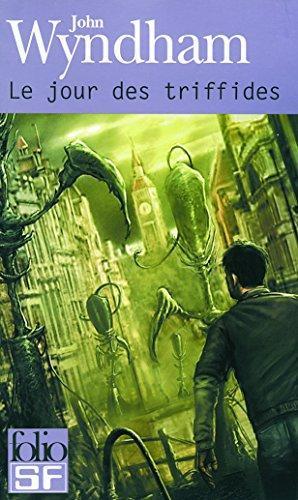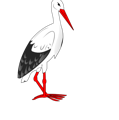cretinodicrescenzago ha recensito The Day of the Triffids di John Wyndham
Fantascienza apocalittica vintage
5 stelle
Di recente ho pianificato una lettura monografica di classici della fantascienza anglofona (no, quella di fantasy anglofono non è finita, ma è comunque molto avanti sul piano di lavoro e io sono saturo) e quando mi hanno consigliato The Day of the Triffids non mi aveva convinto granché: personalmente odio la sci-fi apocalittica in cui una famigliola perfetta sopravvive alla fine dei tempi grazie al privilegio bianco e al potere dell'Amore, cfr. l'orrendo film 2012. Questo detto, ringrazio tanto chi alla fin fine mi ha regalato il romanzo, perché a quel punto ho fatto il passo di leggerlo senza pregiudizi e l'ho adorato: a quanto pare a me fa schifo la sci-fi apocalittica ingurgitata e defecata da Hollywood, ma quella matura con dietro una visione artistica mi piace assai, e The Day of the Triffids trasuda visione artistica. È un romanzo degli anni Cinquanta calato appieno nello Zeitgeist …
Di recente ho pianificato una lettura monografica di classici della fantascienza anglofona (no, quella di fantasy anglofono non è finita, ma è comunque molto avanti sul piano di lavoro e io sono saturo) e quando mi hanno consigliato The Day of the Triffids non mi aveva convinto granché: personalmente odio la sci-fi apocalittica in cui una famigliola perfetta sopravvive alla fine dei tempi grazie al privilegio bianco e al potere dell'Amore, cfr. l'orrendo film 2012. Questo detto, ringrazio tanto chi alla fin fine mi ha regalato il romanzo, perché a quel punto ho fatto il passo di leggerlo senza pregiudizi e l'ho adorato: a quanto pare a me fa schifo la sci-fi apocalittica ingurgitata e defecata da Hollywood, ma quella matura con dietro una visione artistica mi piace assai, e The Day of the Triffids trasuda visione artistica. È un romanzo degli anni Cinquanta calato appieno nello Zeitgeist dei tempi? Inevitabile, quindi sicuramente ci saranno passaggi che sanno di antico, per stile e per mentalità – ma sanno di antico, non di retrogrado, quindi ci portano a constatare il divario culturale senza rimanerne schifati. Detto questo, ci sono idee speculative affascinanti? A piene mani, in realtà la catastrofe è composta da due fattori che si intersecano. L'atmosfera è agghiacciante e avvincente? Più e più volte. La prosa è curata? Molto, non leggevo un narratore autodiegetico così gustoso dai tempi di The Birthgrave. C'è pathos e sentimento? È melodrammatico, ma ce n'è e funziona. Alla fine lascia un senso di ispirazione e proattività? Tantissimo, e questo per me è il più grande dei meriti.



